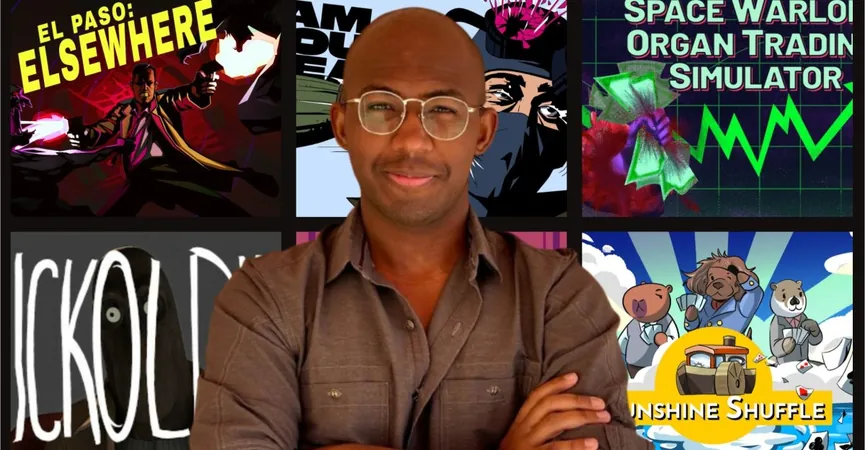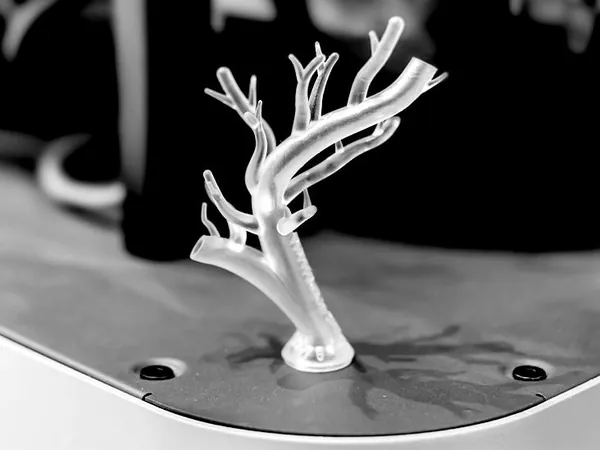
Why Small Indie Games May Be the Future of Game Development
2025-05-31
Author: William
The Secret to Strange Scaffold's Success
In the vibrant world of indie gaming, Strange Scaffold stands out with an impressive lineup of successful titles. From 'Clickolding' to 'I Am Your Beast', and the latest 'Teenage Mutant Ninja Turtles: Tactical Takedown', each game earns a spot on Steam's 'Positive' rankings, with many achieving the coveted 'Very Positive' or 'Overwhelmingly Positive' status.
Xalavier Nelson Jr.: A Visionary in Game Development
To uncover the magic behind this success, I spoke with Xalavier Nelson Jr., the studio's creative director, at the recent Game Developers Conference. Ironically, the conversation took place outside the venue, as Nelson couldn't afford a ticket. This situation reflects his approach: working within tight constraints and staying grounded, reminiscent of the myth of Icarus—making sure to fly straight instead of reaching for the sun.
Efficiency: The Key to Creativity
"With the state of the industry today, it's essential to develop games quickly and efficiently," Nelson emphasized during our chat. With a budget of under $300,000 and an 18-month timeline, Strange Scaffold created a TMNT game that's just 5-6 hours long, yet it resonated well with players who enjoy turn-based tactical games.
Rethinking Game Development
Contrary to the typical indie model that sees teams laboring for years to release a game with high stakes, Nelson advocates for a flexible and adaptive approach. "By sticking a group in a room for 3-5 years and pressuring them to succeed immediately, the industry misses the chance for innovation and developer growth," he said.
The Power of Collaboration and Learning
Strange Scaffold thrives on its unique structure, which promotes collaboration among a community of contractors, rather than a fixed team. Developers contribute to projects while juggling other commitments, but they still benefit from shared knowledge and experience. For example, Nelson shared insights from a recent workshop where team members exchanged ideas, enhancing their games through collective expertise.
A Refreshing Take on Game Development
Feedback from developers within Strange Scaffold often highlights the refreshing environment the studio offers. Unlike traditional game development, where failure can mean the end of a career, Strange Scaffold focuses on creating the best game possible within their means, and then moving on to the next project. Nelson notes, "It's a place where we can experiment and grow, embracing our constraints rather than fearing them."
The Future of Indie Gaming?
As the gaming landscape evolves, Strange Scaffold exemplifies how smaller, more agile game studios can thrive. With a commitment to creativity, collaboration, and efficiency, they’re not just surviving—they're setting new standards for what indie game development can achieve. This refreshing approach could indeed shape the future of gaming, inspiring others to rethink how they create and innovate.









 Brasil (PT)
Brasil (PT)
 Canada (EN)
Canada (EN)
 Chile (ES)
Chile (ES)
 Česko (CS)
Česko (CS)
 대한민국 (KO)
대한민국 (KO)
 España (ES)
España (ES)
 France (FR)
France (FR)
 Hong Kong (EN)
Hong Kong (EN)
 Italia (IT)
Italia (IT)
 日本 (JA)
日本 (JA)
 Magyarország (HU)
Magyarország (HU)
 Norge (NO)
Norge (NO)
 Polska (PL)
Polska (PL)
 Schweiz (DE)
Schweiz (DE)
 Singapore (EN)
Singapore (EN)
 Sverige (SV)
Sverige (SV)
 Suomi (FI)
Suomi (FI)
 Türkiye (TR)
Türkiye (TR)
 الإمارات العربية المتحدة (AR)
الإمارات العربية المتحدة (AR)